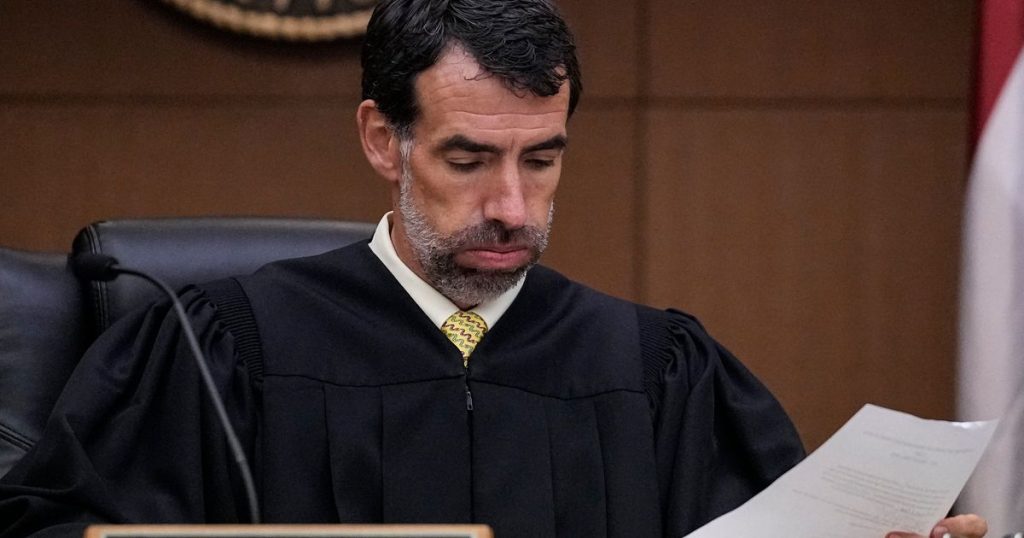A judge in Fulton County, Georgia, has blocked a new rule that requires Election Day ballots to be counted by hand after the close of voting, following a lawsuit filed by the county election board in Cobb County. This ruling came after the same judge ruled that election results must be certified by the deadline set in law, stating that no election official can abstain from certifying the results under any circumstances. The rulings were seen as victories for Democrats and voting rights groups concerned about potential efforts to undermine election results if Donald Trump’s allies were to lose in the upcoming presidential election.
The blocked hand count rule was determined to be “too much, too late,” with the judge noting that there were no guidelines or training tools for its implementation and no allowances made in county budgets for additional personnel or expenses. The ruling emphasized the need for fair, legal, and orderly elections, expressing concerns about the potential for chaos and disorder in the electoral process. The judge invoked the memory of the riot at the U.S. Capitol on January 6, 2021, pointing out that anything that adds uncertainty to the electoral process can harm public trust and confidence in the results.
The State Election Board argued that the hand count process was not complicated and estimated that it would only take a few extra minutes to complete. However, the judge’s decision to block the enforcement of the rule was welcomed by Democratic groups and the Harris campaign, who viewed it as an attempt to delay election results and sow doubt in the outcome. The ruling was seen as a defense of the integrity of the election process and an effort to prevent any potential disruptions or delays in reporting results.
The certification ruling, stemming from a lawsuit filed by a Republican member of the election board in Fulton County, sought to clarify the authority of county election officials to reject certification based on fraud concerns. However, the judge ruled that county election officials do not have the authority to determine fraud or refuse to certify results based on suspicions, emphasizing the need to follow the law and share concerns with appropriate authorities. The ruling was seen as a win for Democrats and supporters of fair elections.
The rulings are part of a series of legal challenges related to election rules passed by the State Election Board in Georgia, with multiple lawsuits being filed in different counties. The cases highlight the intense scrutiny and legal battles surrounding election procedures and the importance of upholding transparent and fair electoral processes. As the 2022 presidential election approaches, concerns about potential disruptions, delays, and attempts to undermine results continue to be raised, leading to increased legal action and oversight to safeguard the integrity of the electoral system.












